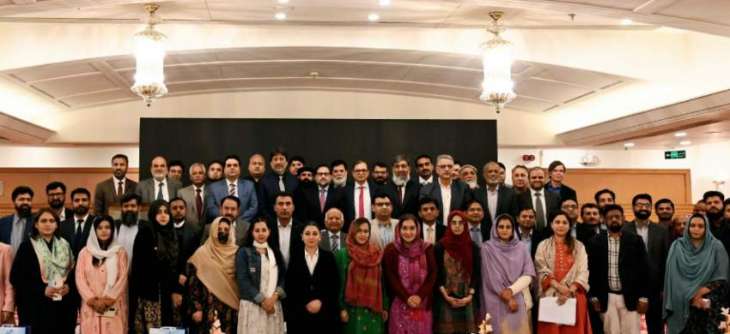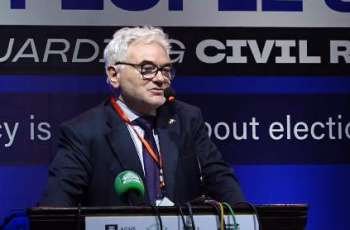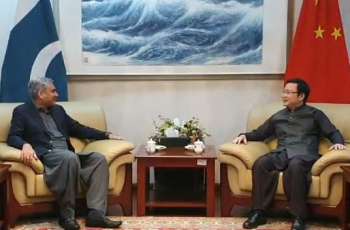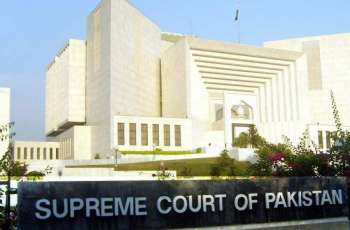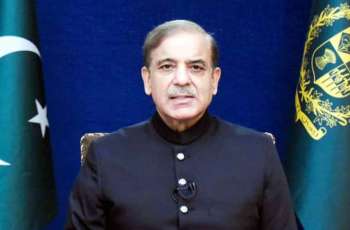The workshops brings together all key stakeholders including federal and provincial government officials, policymakers, water experts, and practitioners from across the country.
ISLAMABAD: (UrduPoint/Pakistan Point News-March 7th, 2024) The International Water Management Institute (IWMI) Pakistan Wednesday organized a national consultation workshop titled "Updates on Current Status of Water Accounting in Four Provinces of Pakistan and Developing National Level Water Accounting Guidelines".
The workshop aimed to support the implementation of the National Water Policy (NWP), and was organized under the UK Aid-funded Water Resource Accountability in Pakistan (WRAP) Programme Component 1: Climate Resilient Solutions for Improving Water Governance (CRS-IWaG).
Dr. Mohsin Hafeez, Director for Water, Food, and Ecosystems and Team Leader for the WRAP Programme Component 1: CRS-IWaG, briefed the meeting on the provincial consultations for the Water Accounting Journey. He informed them that IWMI Pakistan had initiated work on Water Accounting and Water Resources Assessment at the federal level under the WRAP Programme Component 1: CRS-IWaG.
Furthermore, he said that developing a National Water Accounting Framework would enable the government to make informed decisions and resolve disputes between the provinces of Punjab, Sindh, KP, and Balochistan.
He added that the government has information on surface water for the Indus Basin, but groundwater data is unavailable, which hinders accurate decision-making for water management.
While giving an overview of the WRAP Programme Component 1, Dr Hafeez said that IWMI Pakistan had developed a water accounting framework at the federal level in Punjab's Okara district. In addition, Eddy Covariance flux towers were installed in Okara, Chakwal, Rahim Yar Khan, and Sheikhupura, which will provide data on water and carbon emissions in agriculture and contribute to agroecological zoning.
Dr. Hafeez also mentioned that IWMI Pakistan organized four consultation workshops at the provincial levels.
The workshops brought together all key stakeholders, including federal and provincial government officials, policymakers, water experts, and practitioners from across the country, to discuss and deliberate on the importance of Water Accounting and its implications for sustainable water management in Pakistan.
As chief guest, Federal Secretary Ministry of Water Resources, Syed Ali Murtaza, shared insightful perspectives on the government's commitment to addressing the complex interplay of water, food, and climate challenges. He expressed concern over the lack of a water framework in Pakistan for 70 years and highlighted the groundwater depletion situation in Multan and Lahore.
"Water governance is only implemented to a certain extent in Punjab. The groundwater level in Multan has plummeted to 600 feet, while in Lahore, the water table is decreasing by three feet each year.
Despite the existence of the Punjab Water Act and Water Policy, WASA pumps 350 million gallons of water daily in Lahore. It is challenging to prevent private individuals from pumping water, but solar pumping can be supported as a solution. However, it should not be allowed without any law in place, he added.
Engr. Ahmad Kamal, Chairman Federal Flood Commission (MoWR), presented an overview of challenges and opportunities in the Indus Basin regarding water accounting and management. He said that Pakistan is the eighth most vulnerable country to climate change, and over the last 30 years, we have been ranked amongst the top 10 climate-vulnerable countries. There is no groundwater regulatory framework, and anyone can abstract as much groundwater as they want, leading to fast depletion of groundwater sources across Pakistan."
The event ended with a group discussion on the Development of National Water Accounting Guidelines and the way forward. Participants were divided into five groups belonging to Punjab, KPK, Sindh, and Baluchistan.
The groups discussed developing the Punjab-level water accounting system and its integration with the water monitoring system, ensuring data reliability, capacity building institutes, and having necessary policy frameworks in place.
The participants presented suggestions for the accuracy of water accounting data.
They suggested developing a website for centralizing water data, capacity building of WASA, Public Health Engineering, and IRSA related to water accounting, data sharing arrangement among institutions of provinces, integrated water accounting, i.e., groundwater, surface water, and rainfall data; future projections of water availability assessments from different sectors, incorporating water accounting systems in Water Resources Commission (WRC) of Punjab, Sindh, KPK and Baluchistan groundwater monitoring for the entire country.
Captain (r) SaifAnjum, the Secretary of the Ministry of Aviation, gave the closing remarks at the workshop.
Other speakers included Dr Muhammad Ashraf, Advisor for Science and Policy at IWMI, Muhammad Ehsan ul Haq Leghari, Member of Sindh IRSA, Engr. Kifayat Zaman, Director General of FWMC, Bilal Anwar, CEO of NDRMF, Jippe Hoogeveen from FAO, Mazhar Hayat Deputy Secretary of MoCC, Mahar Sahibzad Khan, Director General of PMD, and Dr Jehanzeb Masud Cheema from IWMI.
